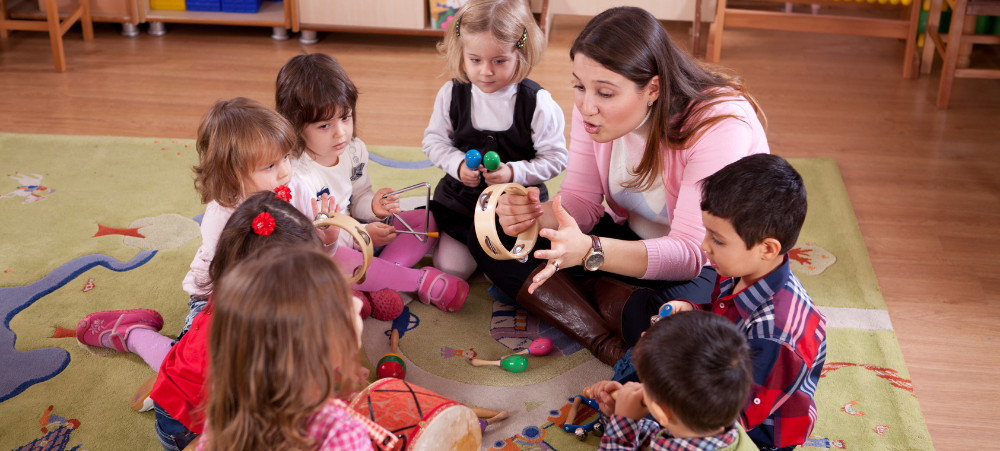For many parents, play seems frivolous. However, there’s a method in the madness – in it lies the freedom to think, express, interact, and explore
As adults, we forget what it’s like to lose ourselves in play. Yet, from an early age, it’s a critical part in how we develop into well-rounded people. Several studies show why play is important in animals and humans alike. A study involving young rats found that play triggered lasting changes in parts of the brain used for thinking and processing social interactions, while adults who play are more productive at work, cope better with stress, and can find original solutions to problems.
We need play at any age, but it’s hugely consequential in early childhood development (ECD). A preschooler messing around in a sandpit, fumbling with building blocks, or scribbling on a blank piece of paper doesn’t appear to be learning anything – but look closer. See them digging, then using a spade to transfer the sand into a bucket. Look at them carefully creating a mini-city on the carpet. Watch their little wrist and fingers intently clutching a crayon, making swirling, repetitive circles.
“There’s a method in the madness,” says Janet Beyrooti, Preschool Curriculum Manager at independent education provider Curro Holdings. “A child playing in a sandpit with a bucket and a spade, putting the sand in with precision and speed, doesn’t start like that – there’s more sand out of the sandpit than in it. However, children who master something as ‘simple’ and playful as putting sand in a bucket, master hand-eye co-ordination. They can look up at the whiteboard in primary school, quickly look down and copy what they see, and write at speed.”
A 2019 academic paper entitled Toward a South African Pedagogy of Play talks about the “paradox of play”: how it’s messy and chaotic, yet a school is a place of rules and order; how play can feel timeless yet schools run on timetables. To address these contradictions, the authors argue that an intentional approach to play – that leverages its power – is needed.
With this in mind, Curro takes a play-based, child-initiated learning approach in their enriched preschool curriculum, where young children are allowed to play freely indoors and out, and where they can learn through doing, at their level, in a safe environment. Through child-initiated learning, Curro’s ECD practitioners guide children through skills development, but the children take the lead, and everything happens through play.
“You and I have life experience,” explains Beyrooti. “We may want to tell a child not to mix all the paint colours because it’ll make a brown picture – that’s adult-initiated. The child needs to experience what happens if they mix everything. Or, if you tell them they’re building something too high it’ll fall, those are just words. We need children to experience these skills, through play, and that’s what we’ve created as a school.”
According to Beyrooti, a young child thinks creatively first because they don’t yet have enough verbal skills. If they don’t have the freedom to do this, there can be delays when entering primary school. This creative thinking is fostered through play: the child stacking building blocks is practising planning where the date should go in an exercise book, and the child making big, circular scribbles is learning how to write by building an automatic response to go ‘over the top’. They can’t form letters yet, but, says Beyrooti, letter formation is an ‘over the top’ movement with the wrist and fingers. Every alphabet letter, even if it’s not a circle, begins as a circular movement at the top, anticlockwise – and it all starts with a scribble, she emphasises.
“By the time a child reaches primary school, you can see who has played enough,” says Beyrooti. “Those exposed to play-based learning are the children who can now put their creative thinking into words, they’re physically agile with well-toned muscles and tendons, they have seamless hand-eye co-ordination, and soft skills like communication and problem-solving already have a strong foundation. Research also supports the idea that children with well-developed soft skills tend to excel professionally. This is possible because they’ve been given the freedom to think, express, interact, and explore from the very start – all through play,” she concluded.
We understand that there are many aspects that encompass a Mother, Father or Child and strive toward providing resources and services that accommodates this.
Our content is aimed to inform and educate families on issues starting from pregnancy through to the challenges of the teen-age years.
- Tips for Breastfeeding in Public: Confidence and Comfort - November 20, 2025
- Eskort launches Kiddos: South Africa’s first pork range made just for kids - November 13, 2025
- Putting the Power of Learning in Learners’ Hands During Global Education Week - November 12, 2025





